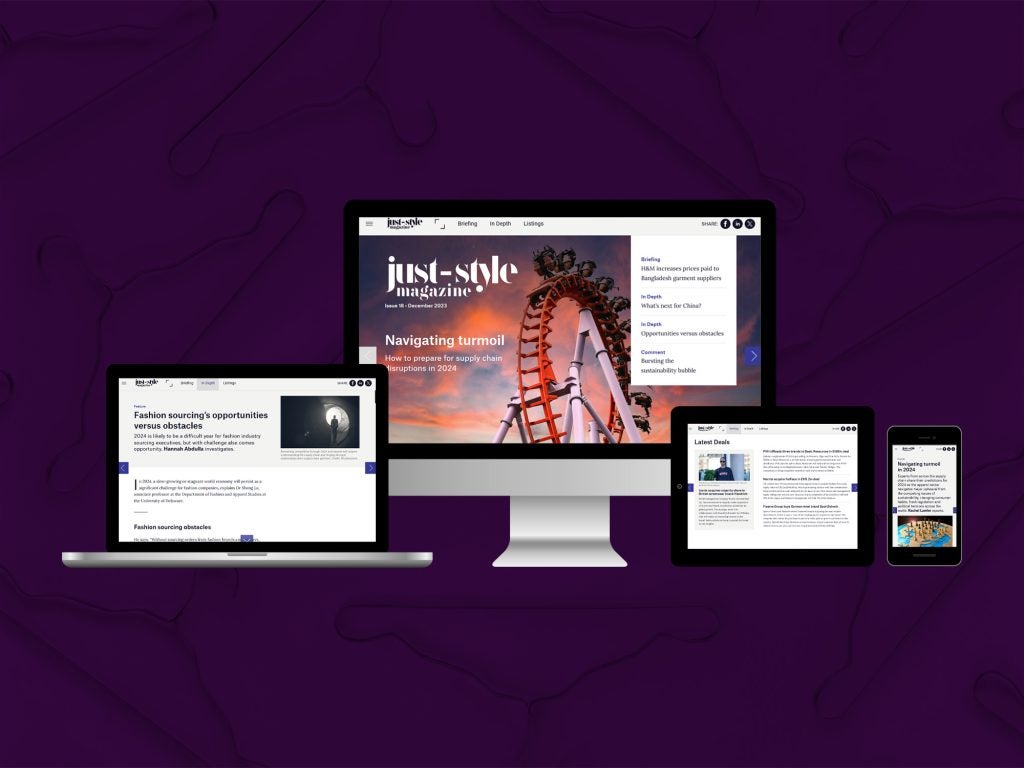
The ISSB’s first two standards are IFRS (International Financial Reporting Standards) S1 General Requirements for Disclosure of Sustainability-related Financial Information, and IFRS S2 Climate-related Disclosures, which will now be released by the end of Q2 2023.
These two standards lay down in practical detail how clothing and textile companies, and those from other sectors, can report how they are impacted by climate change and the environment and how they are preparing to deal with these issues, which can impact their bottom line. Their goal is to help global investors better assess the long-term value of listed companies, with sustainability reports issued alongside standard financial statements.
Together, these inaugural standards and the ISSB’s capacity-building programme aim to help build trust, confidence and much-needed global comparability to the sustainability disclosure landscape.
What are the requirements for apparel and footwear brands and retailers?
They are also required, where they use certified fibres and materials, for example GRS, BCI, GOTS, Cradle to Cradle to name a few, to disclose the percentage of the weight of the certified fibres against the percentage of raw material sourced.
What should fashion businesses know about first set of IFRS standards:
- Global disclosure standards: ISSB Standards allow companies and investors to standardise on a single, global baseline of sustainability disclosures for the capital markets, with any additional jurisdictional requirements being built on top of this global baseline.
- International support: The ISSB’s work has received strong support from investors, companies, policy makers, market regulators and others from around the world, including the International Organization of Securities Commissions (IOSCO), the Financial Stability Board, the G20 and the G7 Leaders.
- Disclosure of decision-useful, material information: Focusing exclusively on capital markets means that ISSB Standards only require information that is material, proportionate and decision-useful to investors. Moreover, by beginning with climate, companies can phase-in their sustainability disclosures.
- Building on and consolidating existing initiatives: IFRS S1 and IFRS S2 are built on and consolidate the Task Force on Climate Related Disclosures (TCFD) recommendations, SASB Standards, CDSB Framework, Integrated Reporting Framework and World Economic Forum metrics to streamline sustainability disclosures. Consolidation will help companies to benefit from their investments they’ve already made in sustainability disclosures while reducing the ‘alphabet soup’ of sustainability disclosures.
- Reducing duplicative reporting: The baseline approach provides a way to achieve global comparability for financial markets, and allow jurisdictions to further develop additional requirements if needed to meet public policy or broader stakeholder needs. This approach helps to reduce duplicative reporting for companies subject to multiple jurisdictional requirements.
- Helping companies communicate worldwide cost-effectively: ISSB Standards have been designed to provide reliable information to investors; helping companies to communicate how they identify and manage the sustainability-related risks and opportunities they face over the short, medium and longer term.
- Connections with financial statements: The information required by the ISSB Standards is designed to be provided alongside financial statements as part of the same reporting package. ISSB Standards have been developed to work with any accounting requirements, but they are built on the concepts underpinning IFRS Accounting Standards, already required for use by more than 140 jurisdictions.
- Developed through rigorous consultation: ISSB Standards have been developed using the same inclusive, transparent due process used to develop IFRS Accounting Standards – with more than 1,400 responses to the ISSB’s proposals. All ISSB papers, feedback and technical decision-making are available to view online.
- Interoperability with broader sustainability reporting: The ISSB’s partnership with the Global Reporting Initiative enables the ISSB to build its requirements to be interoperable with GRI standards, helping to reduce the disclosure burden for companies using both ISSB and GRI Standards for reporting.
- A partnership for capacity building: The ISSB’s responsibilities do not stop at standard setting. At COP27, the ISSB announced plans for a capacity building partnership programme, helping to establish the necessary resources for high quality, consistent reporting across developed and emerging economies.
How well do you really know your competitors?
Access the most comprehensive Company Profiles on the market, powered by GlobalData. Save hours of research. Gain competitive edge.

Thank you!
Your download email will arrive shortly
Not ready to buy yet? Download a free sample
We are confident about the unique quality of our Company Profiles. However, we want you to make the most beneficial decision for your business, so we offer a free sample that you can download by submitting the below form
By GlobalData






